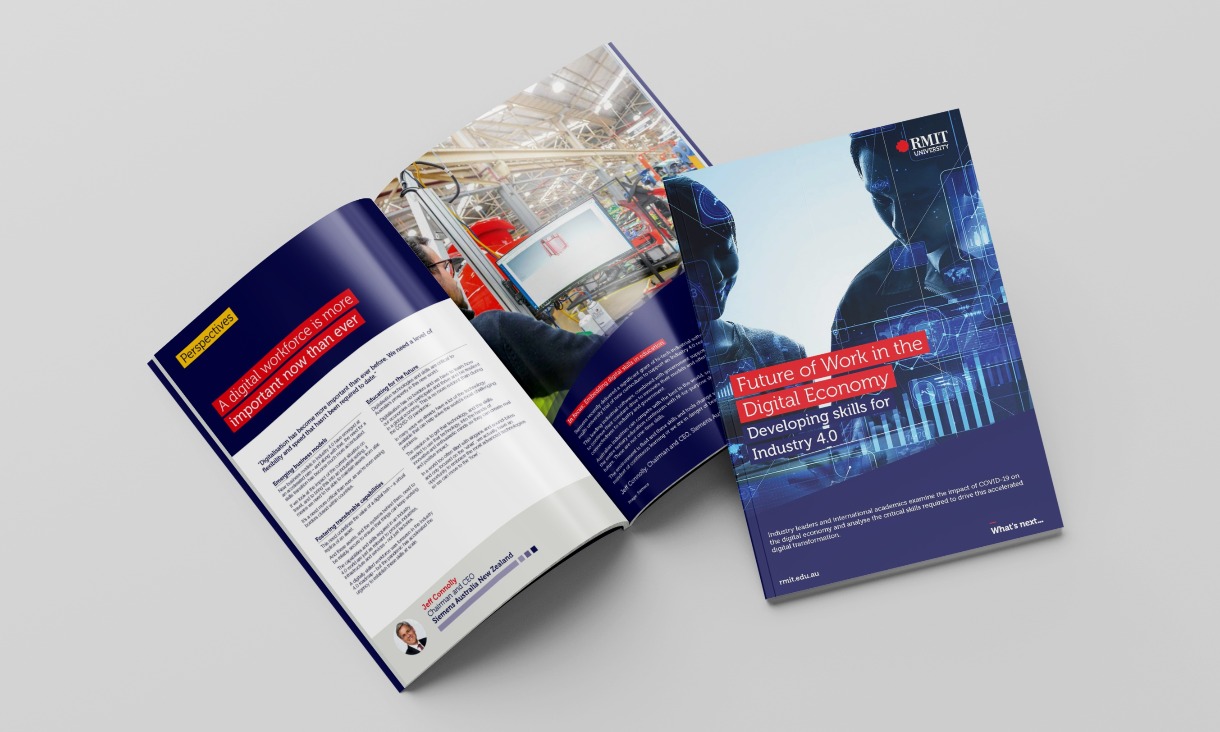Industry 4.0 skills report says the future of work is about people and creativity
New Delhi: The Future of Work in the Digital Economy – Developing skills for Industry 4.0 report, published today, highlights how the COVID-19 disruption has shown that Industry 4.0 is not only about technology – it’s more about people.
Published by RMIT’s College of Science, Engineering and Health and RMIT Europe, the report shares insights from industry leaders and international academics on the impact of COVID-19 on the digital economy and an analysis of the critical skills needed to drive an accelerated digital transformation.
Leaders from Siemens Australia and New Zealand, the Australian Manufacturing Workers’ Union, Engineers Australia, AustCyber, the University of South Australia and Fraunhofer IAO contributed to the report, which was spearheaded by RMIT’s Professor Aleks Subic, Deputy Vice-Chancellor of RMIT’s College of Science, Engineering and Health, and Vice President for Digital Innovation.
The report also highlights German-Australian cooperation on Industry 4.0, with both countries leading the way as dynamic players in the field of digitalisation through the initiatives Plattform lndustrie 4.0 in Germany and the Prime Minister’s Industry 4.0 Taskforce in Australia.
industry40skillsreportThe new report is an outcome of a global webinar on the Future of Work in the Digital Economy – Developing Skills for Industry 4.0 on 25 June 2020, which was opened by the Australian Ambassador to Germany and hosted by RMIT Europe.
RMIT’s Professor Aleks Subic said closer international cooperation is key to the success of national economies in this field along with strong, inclusive collaboration between industry, government and the education sector.
“This is critical for small businesses to become medium ones, and for some of our medium businesses to scale-up further and take on the world,” he said.
“And what’s at the core of such success is harnessing the power of people and creativity.
“We’re seeing automation remove repetitive and potentially unsafe or hazardous work – freeing up humans to engage in more creative and value-added tasks,” Subic said.
“This involves reskilling and upskilling the existing workforce at pace and scale, because we have an obligation and responsibility both for now and the future.
“We must ask ourselves what skills will our staff need in the future? How can we reskill or upskill the people we have now so we can retain the industry experience but build out the skillsets needed to realise the full potential of Industry 4.0?”
Subic, who has been a member of the Prime Ministers Industry 4.0 Taskforce, is leading the national network of Industry 4.0 TestLabs coupled with the pilot dual sector program in digital technologies.
Also outlined in the Future of Work in the Digital Economy – Developing skills for Industry 4.0 report:
Emerging business models and digital twins. Industry experts say that if we look at the impact of the current situation on travel, and bringing this into an industrial setting, we need to be able to maintain assets from afar.
The opportunity for Australia’s manufacturing sector. One of the attractions of the digital environment, according to union leaders, is the possibility of a return to artisanal production, where workers or teams of workers are responsible for carrying out all the functions needed to form a complete component or item.
Recognition of qualifications beyond borders. Engineering leaders advise that recognition of Australian engineering qualifications must also be a priority, including working with Australian counterparts in Germany to set up the right framework to let the engineering profession work across boundaries.
Global partnerships to solve global challenges. University experts say that it’s easy to make global collaboration happen – it’s no longer about where you’re located but more the time zone of your partners, whether they be in Brazil, Australia, Asia or the Americas. This global lens is critical when working to bridge industry and universities
Cyber security underpins the success of Industry 4.0. Cyber security leaders say that we need more skilled people within the Australian economy to guarantee trust in our digital infrastructure and the integrity of that data.

